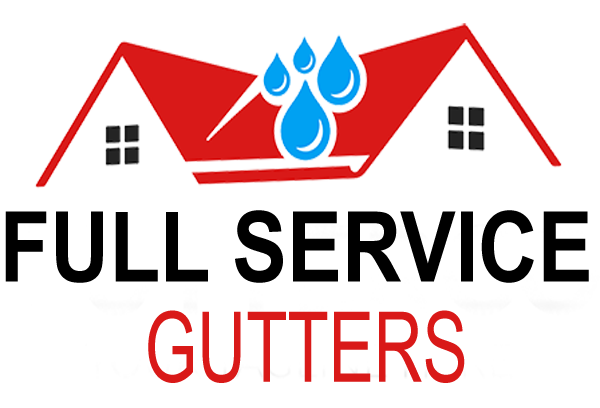When it comes to gutter installation in Georgia, the saying 'an ounce of prevention is worth a pound of cure' truly applies. You may not think much about your gutters, but they play a crucial role in protecting your home from water damage.
From the various gutter types suitable for Georgia's climate to the importance of selecting the right materials, there's a lot to consider. But what truly sets a professional gutter installer apart? And how can you ensure your gutters last for years to come?
Importance of Gutter Installation
Proper gutter installation is crucial for safeguarding your home against water damage and maintaining its structural integrity. When it rains in Georgia, water can accumulate on your roof and flow down the sides of your home. Without a functional gutter system, this water can seep into the foundation, causing cracks, leaks, and potentially compromising the stability of your home.
By ensuring that your gutters are installed correctly, you can direct rainwater away from your home, preventing erosion of the soil around the foundation. This is especially important in Georgia, where heavy rainfall is common and the soil composition can make homes more susceptible to water damage.
Additionally, properly installed gutters can help prevent basement flooding, mold growth, and insect infestations that thrive in damp environments. By investing in quality gutter installation, you're proactively protecting your home and saving yourself from costly repairs down the line. Remember, when it comes to safeguarding your home in Georgia, proper gutter installation is key.
Common Gutter Types in Georgia
To effectively protect your home against water damage in Georgia, understanding the common gutter types suitable for the region is essential. Here are three common gutter types you might consider for your home:
- K-Style Gutters: These gutters have a flat bottom and back, resembling the letter K. They're popular for their ability to hold more water due to their shape, making them ideal for areas with heavy rainfall like Georgia.
- Half-Round Gutters: As the name suggests, these gutters are shaped like a half-circle. They offer a classic look and are less likely to accumulate debris compared to other gutter types, reducing the chances of clogging.
- Seamless Gutters: Seamless gutters are custom-made to fit your home perfectly, reducing the chances of leaks and enhancing the overall efficiency of your gutter system. They require less maintenance and offer a sleek appearance that complements the aesthetics of your home.
Choosing the Right Gutter Material
When selecting the appropriate gutter material for your home in Georgia, consider the durability and weather resistance offered by different options.
Aluminum gutters are a popular choice due to their lightweight nature, rust resistance, and affordability. They're suitable for most Georgia climates but may dent more easily than other materials.
Copper gutters, while more expensive, add a touch of elegance to your home and are extremely durable, developing a unique patina over time.
Steel gutters are another sturdy option, best suited for areas with harsh weather conditions as they're less prone to damage from falling debris.
Vinyl gutters are low maintenance and cost-effective, but may not withstand extreme temperatures as well as other materials.
Finally, zinc gutters offer excellent durability and a distinct aesthetic appeal, making them a premium choice for homeowners looking for long-lasting gutter solutions in Georgia.
Consider your budget, climate, and desired aesthetic when choosing the right gutter material for your Georgia home.
Hiring a Professional Gutter Installer
Consider engaging a reputable and experienced gutter installer to ensure a seamless and efficient installation process for your home in Georgia. Hiring a professional for the job can save you time, stress, and potential future expenses. Here are some key reasons why investing in a professional gutter installer is a wise decision:
- Expertise: Professional gutter installers have the knowledge and experience to assess your home's specific needs and recommend the most suitable gutter system.
- Quality Materials: They have access to high-quality materials that may not be readily available to the average consumer, ensuring a durable and long-lasting gutter system for your home.
- Guaranteed Work: By hiring a professional, you typically receive guarantees on the work performed, giving you peace of mind knowing that any issues will be promptly addressed.
Maintenance Tips for Longevity
For optimal longevity of your gutter system, regular maintenance is essential to prevent potential issues and ensure continued functionality. Start by inspecting your gutters at least twice a year, ideally in the spring and fall, to check for any clogs, leaks, or damage. Use a sturdy ladder to safely access the gutters and remove debris such as leaves, twigs, and dirt. Ensure that the downspouts are clear and water can flow freely through the system.
Additionally, check the gutter slope to confirm that water is properly draining towards the downspouts. Adjust any sections that aren't sloped correctly to prevent water pooling and potential damage to the gutters. Consider installing gutter guards to minimize the amount of debris entering the system and reduce the frequency of cleanings required.
Lastly, inspect the gutter fasteners and re-secure any loose parts to maintain the structural integrity of the system. Addressing maintenance tasks promptly can help prolong the life of your gutters and prevent costly repairs in the future.
